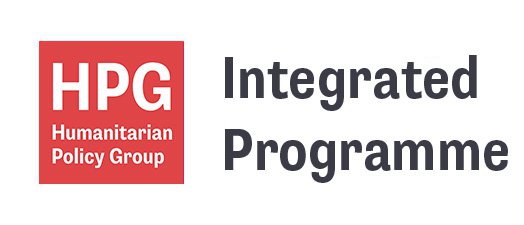HPG Integrated Programme 2017–19: understanding local response in crises
Achieving a more local, devolved response to humanitarian crises has risen up the policy agenda in recent years as one possible answer to the problems besetting international humanitarian response.
Proponents argue that a more local approach to assistance:
enhances flexibility and efficiency
is more responsive to contexts and needs
involves local aid actors and communities much more meaningfully in decisions affecting humanitarian programming.
At the same time, however, there is little consensus around what a genuinely local response actually means, either in theory or in practice, and there are very few incentives to promote it within a system structurally and culturally inclined towards centralisation. This set of proposals for HPG’s Integrated Programme of research for 2017–19 critically analyses key aspects of this debate.
In this Integrated Programme, we adopt a more ground-level view of important issues within the humanitarian sector, while also drawing out their systemic and strategic implications.
As local as possible, as international as necessary: understanding capacity and complementarity in humanitarian response
The first project will seek insights into how capacity is understood in the humanitarian sector; what capacity exists among local, national and international actors in specific contexts; and what incentives, power structures, and relationships promote or inhibit better collaboration and complementarity.
The tip of the iceberg? Understanding non-traditional sources of aid financing
The second project seeks to situate assistance from the formal humanitarian system within the wider range of resources available to crisis-affected people, including from family and friends, community and national organisations, local and national governments, faith communities and the private sector.
Informality and protection: understanding the role of informal non-state actors in protecting civilians
The third project explores the role of informal non-state actors in protection: how they define it and provide it (or not), how affected communities see their impact on protection, and the extent to which affected communities distinguish between formal and informal actors in terms of actual protection outcomes on the ground.
Dignity in displacement: from rhetoric to reality
The final project proposed here connects our extensive work on displacement with an analysis of what constitutes dignity in humanitarian assistance. It adopts a local lens to explore whether, and in what ways, humanitarian interventions really do uphold and further the dignity of displaced people.
Staff
-
Kerrie Holloway
Research Fellow
-
Sherine El Taraboulsi-McCarthy
Senior Research Fellow
-
Barnaby Willitts-King
Senior Research Fellow
-
Wendy Fenton
Senior Research Fellow and HPN Coordinator
-
John Bryant
Research Fellow
-
Matthew Foley
ODI Managing Editor And Senior Research Fellow (HPG)
-
Sara Pantuliano
Chief Executive
